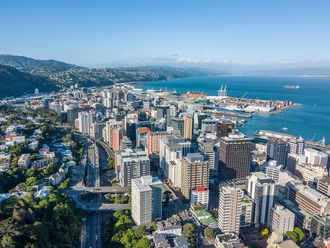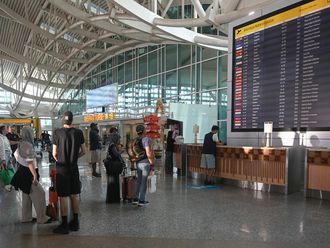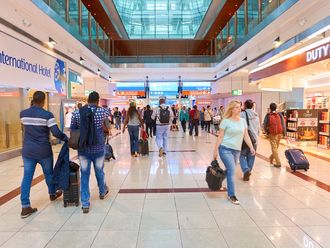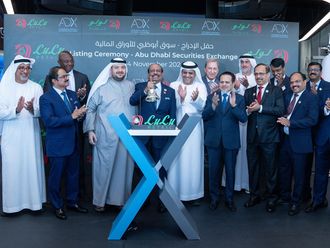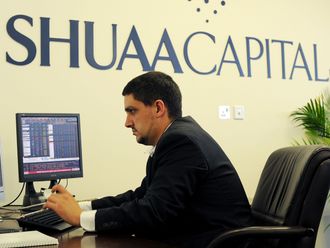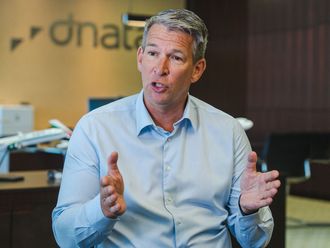Tourism is one of the world’s largest economic sectors. Here in Dubai, tourism directly contributes to around 20 per cent of the overall economy, so it is crucial that executives in the hospitality industry learn how to balance this incredible growth, while minimising the impact on the environment.
In the Middle East, the hospitality industry has been slower at coming to grips with what really needs to be done to ensure a sustainable future, probably due to its constant supply of plentiful, and cheap, sources of energy.
In Europe, taxes, fuel and energy prices continue to increase, but in the absence of these factors, how do you convince people that saving energy is still of vital importance?
Energy use in tourism is expected to double by 2050, and both regionally and internationally, sustainable tourism has become an increasingly ‘hot topic’. On September 27, World Tourism Day took place; under the theme ‘sustainable energy’, and looking ahead, in October, the World Energy Forum 2012 will be held in Dubai.
I recently attended a World Tourism Day event in Sharjah and it was evident that many companies across the UAE are making great strides towards offering green, realistic solutions for the hospitality industry, but more needs to be done. A few reoccurring issues became evident throughout the day, education being the main hurdle.
Education is already a priority in the region, and in my experience, children can be the drivers behind environmental initiatives. If we’re to make a real difference in the future, we need to instil green practices into our children’s everyday routines now.
Bee’ah, (an environmental company based in Sharjah) dedicates considerable time and resources to teaching the younger generation; the Bee’ah School of Environment is a comprehensive, educational programme that can be applied in classrooms and eco-clubs. If we encourage good energy habits now in the younger generation, it will directly impact the choices they make in the future.
Within the hospitality industry, education needs to be a two-pronged approach. At Carlson Rezidor Hotel Group, we manage hotels for our owners, and it’s our job to inform our owners on the environmental and monetary benefits of various energy-saving initiatives. Yes, the initial costs of implementing eco-friendly technology may be more expensive than traditional, energy-sapping counterparts, but the return on investment is often quick and plentiful.
The second part of our task is the education of our staff and our guests. Huge energy savings can be made with a few simple changes to our every day habits. Hotels aren’t just the front of house, bedrooms and restaurants that guests see, the huge back of house areas, from the kitchens to housekeeping, should all be a priority, as it’s there that businesses can save energy without compromising the guest’s experience.
It’s time to start implementing LED lights as standard, making sure the air conditioning is kept at a steady 24 instead of 16, and fitting motion-sensors for lights — to name just a few.
The public is becoming more aware of changes they can make personally. For example, it’s long been a standard in hotels to forgo having towels changed daily to save on water, but now we’re seeing more and more innovative ideas being applied, and they don’t have to be elaborate or costly. By providing walking and cycling maps in the rooms, we are actively encouraging guests to think of alternative modes of transport during their stay.
Our hotels around the region have been reporting changes in their customer’s behaviour, and encouragingly, we have seen guests enquiring about how they can offset their carbon footprint, or opting out of the house keeping service altogether. Standards and common practices are beginning to change in our industry, and we should be leading the way.
Across the region’s hospitality industry, a unified approach to energy saving is needed. Many hotel chains have their individual green policies in place, but as an industry, it might increase our successes overall, if we join together to create a regional scheme, tailored specifically for the Middle East. We have the potential to achieve so much more. The environmental issues, and advantages, we experience in the Middle East are different to those in Europe and America and by sharing best practices, we might be able to set new standard of ‘green’ initiatives within the tourism and hospitality sector.
It’s time that we got serious about energy saving. The tourism industry needs to put tangible and motivating targets in place.
And practicing what we preach, at Carlson Rezidor, we recently announced our ambitious energy-saving scheme, Think Planet: where we aim to save 25 per cent of energy across our 400 hotels by 2015, meaning our cumulative savings over five years will be 1.5 times the energy consumption of all the households in Iceland.
For Carlson Rezidor, Think Planet signifies a clear, solid target; one that we will be constantly monitored over the coming five years, and it will only be achieved through concrete actions by each and every member of staff. So, we urge our counterparts within the tourism industry; airlines, cruise ships, hotels both independent and global groups, to come together in a shared goal to reduce energy usage, and to start implementing real, aggressive targets in a bid to conserve resources today. Now is the time to change and we can only make a difference together.
— Mark Willis is Area Vice President, Carlson Rezidor Hotel Group


